Here’s a simple trick I discovered for etching designs on glass bottles using the bottle’s label as a built-in resist.
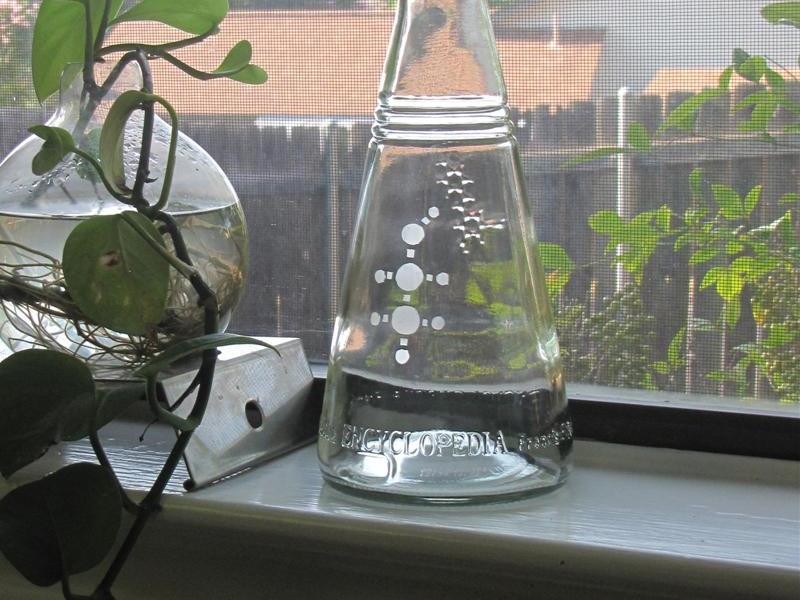

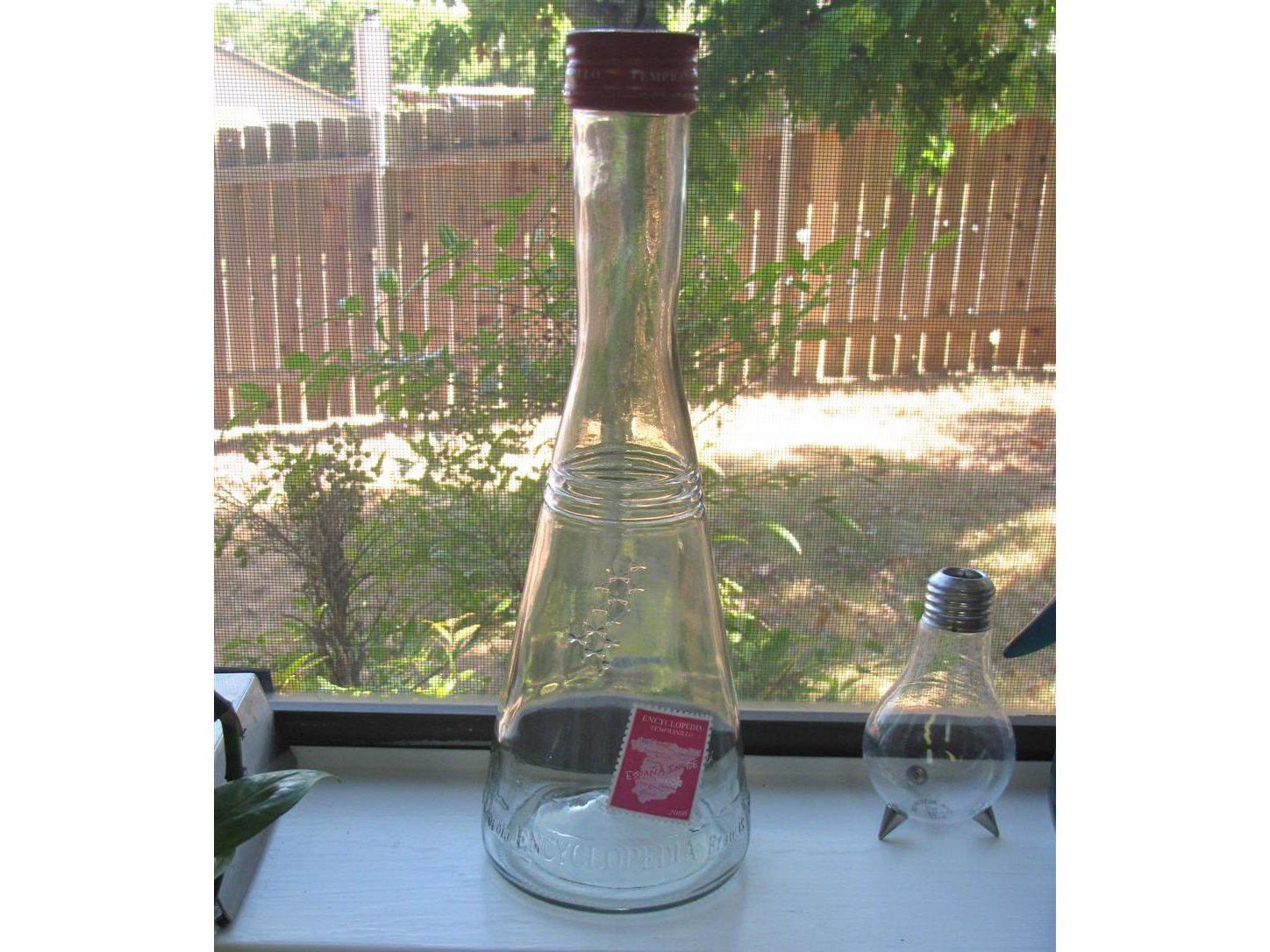
I’ve been holding onto this bottle of 2006 Coppola Encyclopedia Tempranillo for a couple of years. The wine itself was really only suitable for cooking, but I love the bottle because it has a representation of the resveratrol molecule molded into the side.
This process probably requires a bottle with an adhesive plastic label. A sure sign that the label is suitable is is that parts of it are transparent.
If you’re going to cut your bottle, do so before attempting to etch a design on it, as the cutting process is considerably more failure-prone than etching.
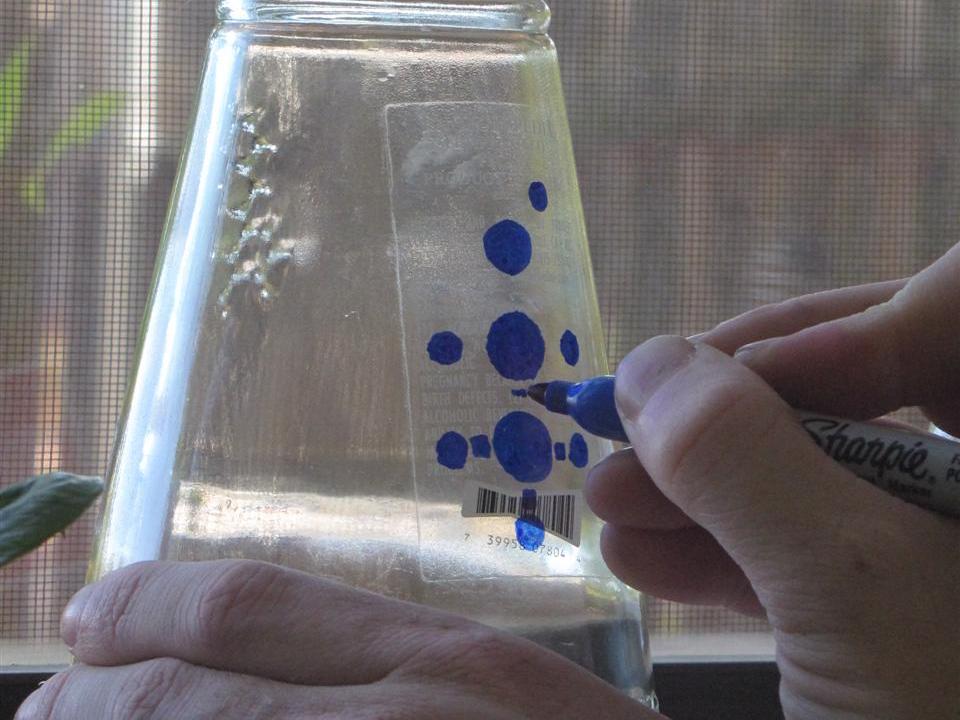
Use a permanent marker or whatever you can find that will stick to the label.
Try to choose a design that complements your bottle. I chose a ball-and-stick model of the ethanol molecule to complement the resveratrol molecule molded into this bottle.
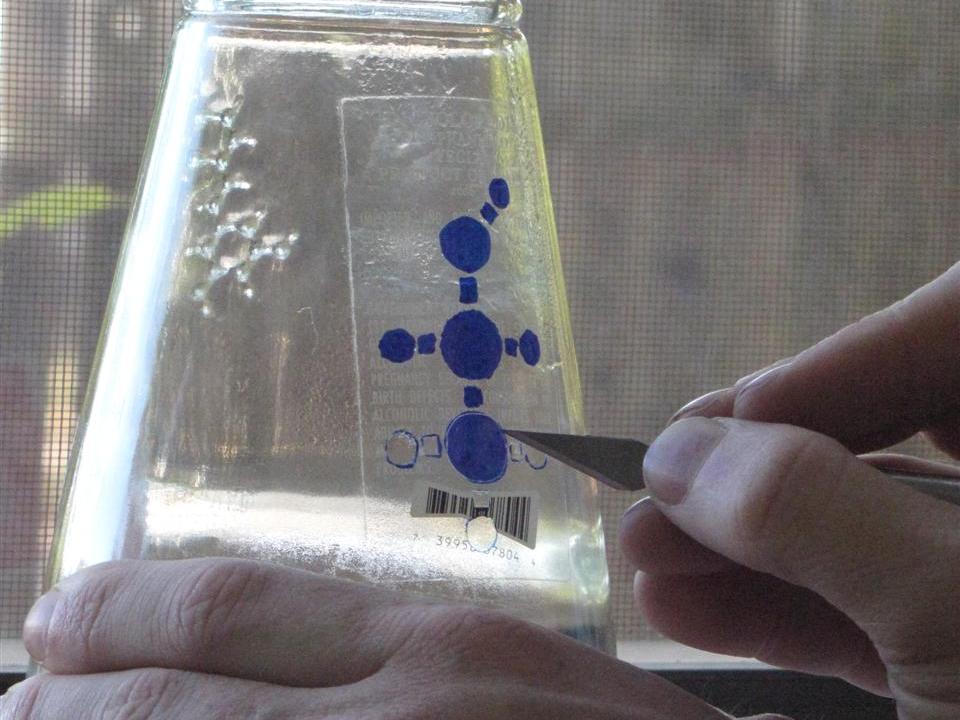
Using your hobby knife or razor, carefully cut around the edges of your design.
Lift the edges of the cut-out areas using the blade of your knife or razor.
Finish peeling off each positive cut using a pair of tweezers.
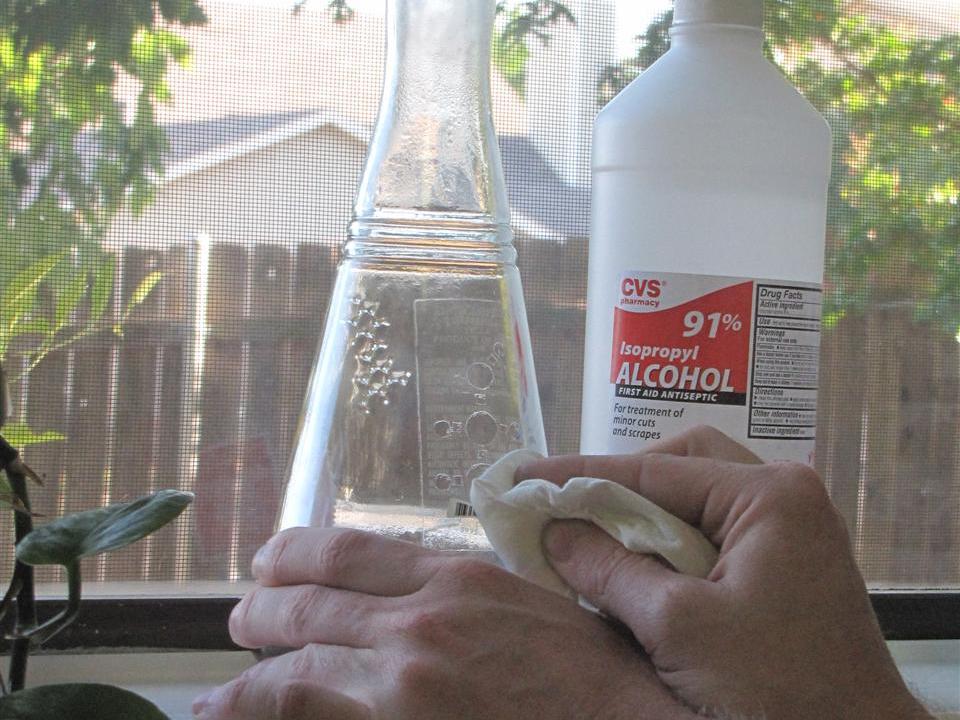
Wipe down the cut stencil with a paper towel generously soaked with rubbing alcohol. This will remove any residual ink and, most importantly, clean any remaining adhesive from the cut-out areas.
To make sure the remaining stencil is firmly adhered to the bottle everywhere, wrap a scrap of paper around the bottle, over the label, and rub it briskly with the side of your marker.
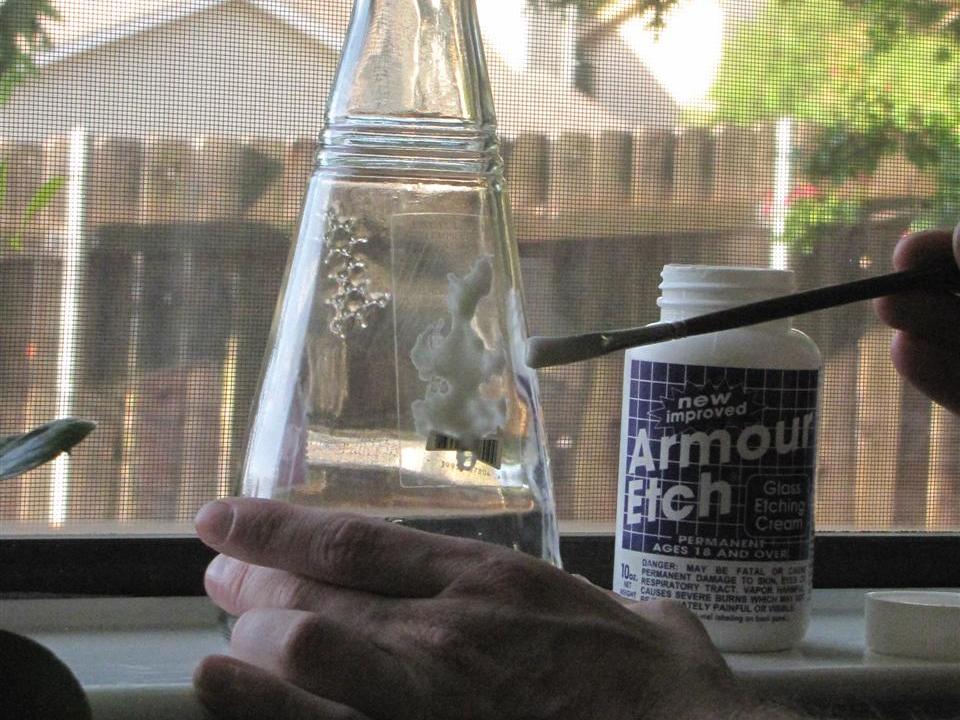
Generously daub etching cream over the exposed positive areas of your design using a brush.
Leave the etching cream in place 5 minutes, or whatever the label says, and then wash away all traces of the cream with plenty of warm water in the sink.
Glass etchants are toxic and should be handled with care. Wear gloves and goggles and follow the label directions closely.
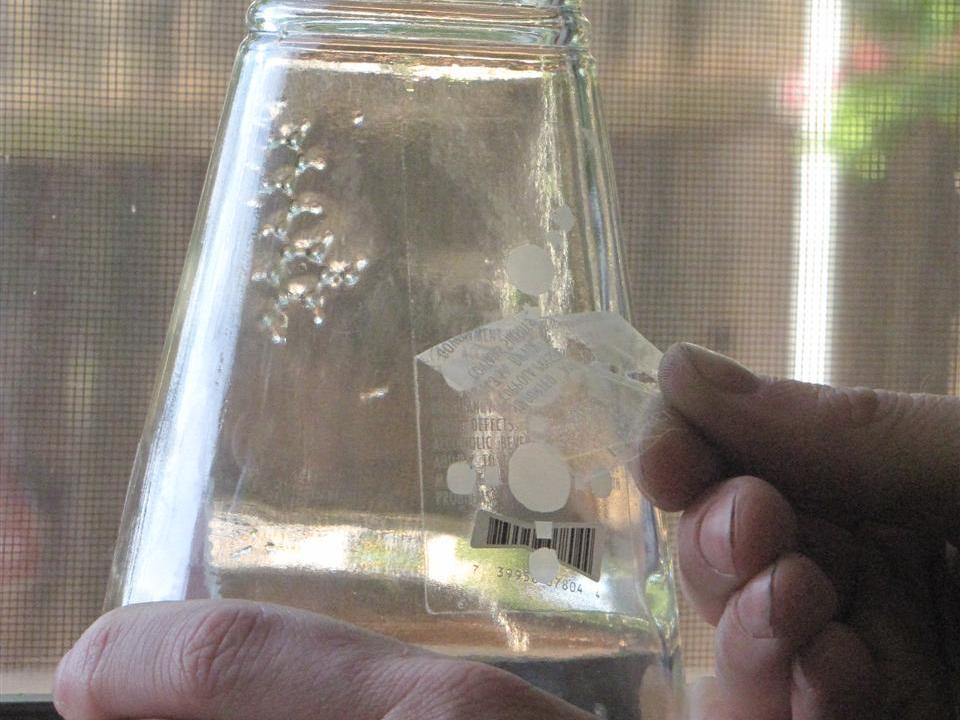
Using your hobby knife, or just your fingernail, lift one corner of the label and peel it off.
Give the etched design one final cleaning with rubbing alcohol and a paper towel to remove any leftover adhesive.